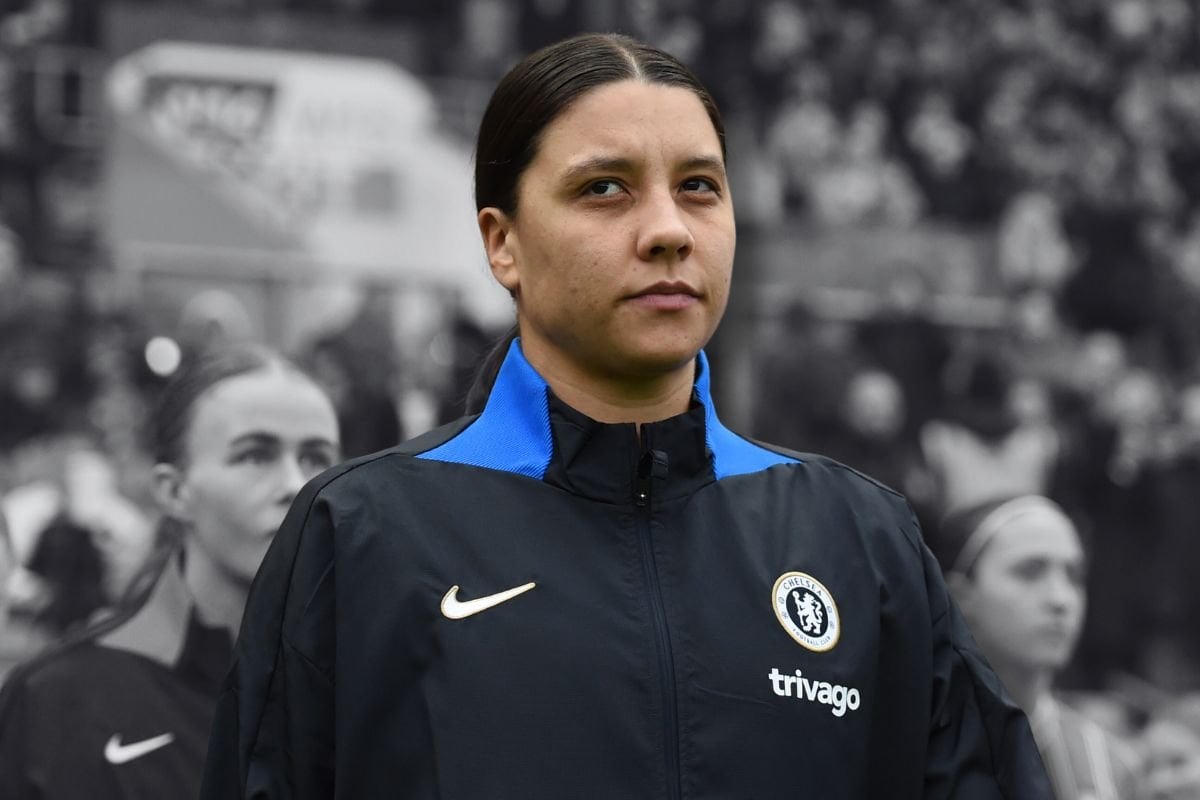
"Stupid and white."
These are the words Australian soccer star Sam Kerr allegedly said to a British police officer back in January 2023.
Watch: Tony Armstrong on racism in Australia. Post continues below.
The same words resulted in Kerr being charged with "racially aggravated harassment", for which she is currently on trial in London for.
While the majority of the conversation online has been heavily in Kerr's favour, it does bring us back to the question that's always raised whenever a white person's whiteness is brought up: Does reverse racism exist?
And let's not waste time by sugarcoating things. No, it does not.
In fact, labelling the altercation as a racist incident undermines the experiences of those who have truly encountered racism.
"But isn't that a double standard?"
Racism seems like a fairly straightforward concept.
Many of us have been taught not to show prejudice towards a person because of their racial and ethnic background. However, the root cause of racism is far more complex.
Racism goes beyond a person's skin colour, the language they speak and the food they eat at home. Instead, it's about the imbalance of power.
According to the Australian Human Rights Commission, "Racism is the process by which systems and policies, actions and attitudes create inequitable opportunities and outcomes for people based on race… It occurs when this prejudice — whether individual or institutional — is accompanied by the power to discriminate against, oppress or limit the rights of others."




























































































